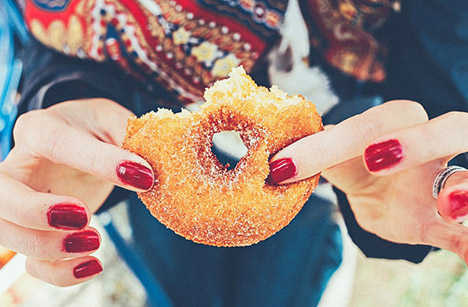On-the-go and workplace consumption leads the snacking charge

The snacking foodservice sector has experienced traffic growth of 25.2 million in 2017. Snacking as a category started to return to growth in 2015, and has once again become a firm favourite food occasion amongst time-poor Australians, now worth $7 billion to the industry, according to a CREST Report released by global research company, the NPD Group.
The rise of the snacking occasion is associated with time poor and working consumers, with on-the-go and workplace consumption leading the snacking charge. However, it’s no longer about grabbing a packet of chips and a chocolate bar. Consumers are looking for Australian grown and owned (29 per cent), local ingredients (20 per cent) and no additives such as hormones (18 per cent). Consumers are purchasing premium products, with demands and expectations of the foodservice industry increasing.
“The Australian snacking category is experiencing somewhat of a renaissance,” said Gimantha Jayasinghe, NPD deputy managing director – Asia Pacific. “However, what snacking means to the consumer and why they are snacking more has now evolved.
”The popularity of burger and meat products especially in the afternoon and evening snacking occasion has given rise to attributes based on provenance and ‘clean-eating’. Thus the quality of the meat and the overall standard of each burger element has grown from demand. Consumers are on the look-out for good price and convenience, with a lot of food variety and great quality. Price is no-longer the only motivation.”
In terms of product heroes as a result of deal-based promotions from QSR operators, the hero snacking giant in the morning is the classic egg and bacon roll, with afternoon and evenings choices leaning towards frozen beverages and flavoured milkshakes.
Snacking, defined as the morning, afternoon and evening dayparts in-between classic mealtimes, currently holds 26 per cent of foodservice traffic share, with the average Australian indulging in the snacking industry 52 times per year.
Consumers tend to spend less on snacking occasions in comparison to other dayparts, with the average snack spend being $5.64 including two snack items, compared with $9.34 and three snack items on a traditional mealtime occasion.
“Australians are relying more and more on snacks for nourishment and fuel, not just to curb those afternoon hunger pangs,” said Jayasinghe. “As consumers seek more nutrient-rich offerings, snacks are an ideal vehicle to deliver healthy choices to those that are pressed for time. Snack manufacturers should really take notice of what the category customer is demanding, in order to grow along with the sector and meet demand.”
The QSR channel makes up the majority of snacking visits (70 per cent), with a significant amount of this traffic associated with the coffee and burger categories. The supermarket channel holds 12 per cent of snacking visits, followed by FSR (10 per cent) and convenience store visits (8 per cent). Retail categories have a higher reliance on the snacking sector compared with other channels, whilst FSR has the least dependence on the category, with only 14 per cent of traffic coming from this segment.
The NPD CREST Report also finds that morning snacking has 38 per cent of traffic share, contributing to 5 per cent growth. Afternoon snacking holds 44 per cent traffic share with 49 percent contribution to growth and the evening snacking occasion is growing quickly, currently holding 18 per cent traffic share and contributing 46 per cent to industry growth.
“Age groups play a part in the rise of the snacking occasion,” said Jayasinghe. “The 50-plus age group is the dominant consumer at the morning snack occasion, while Millennials are the core consumer at both afternoon and evening occasions.
“Consumers wake with the need for coffee and a muffin to kick-start the day, with snacking choices straying more towards value menu offerings such as fries, cola based beverages and regular beef burgers in the afternoon and evening occasions.”
Sheridan Randall, 3rd September 2018







